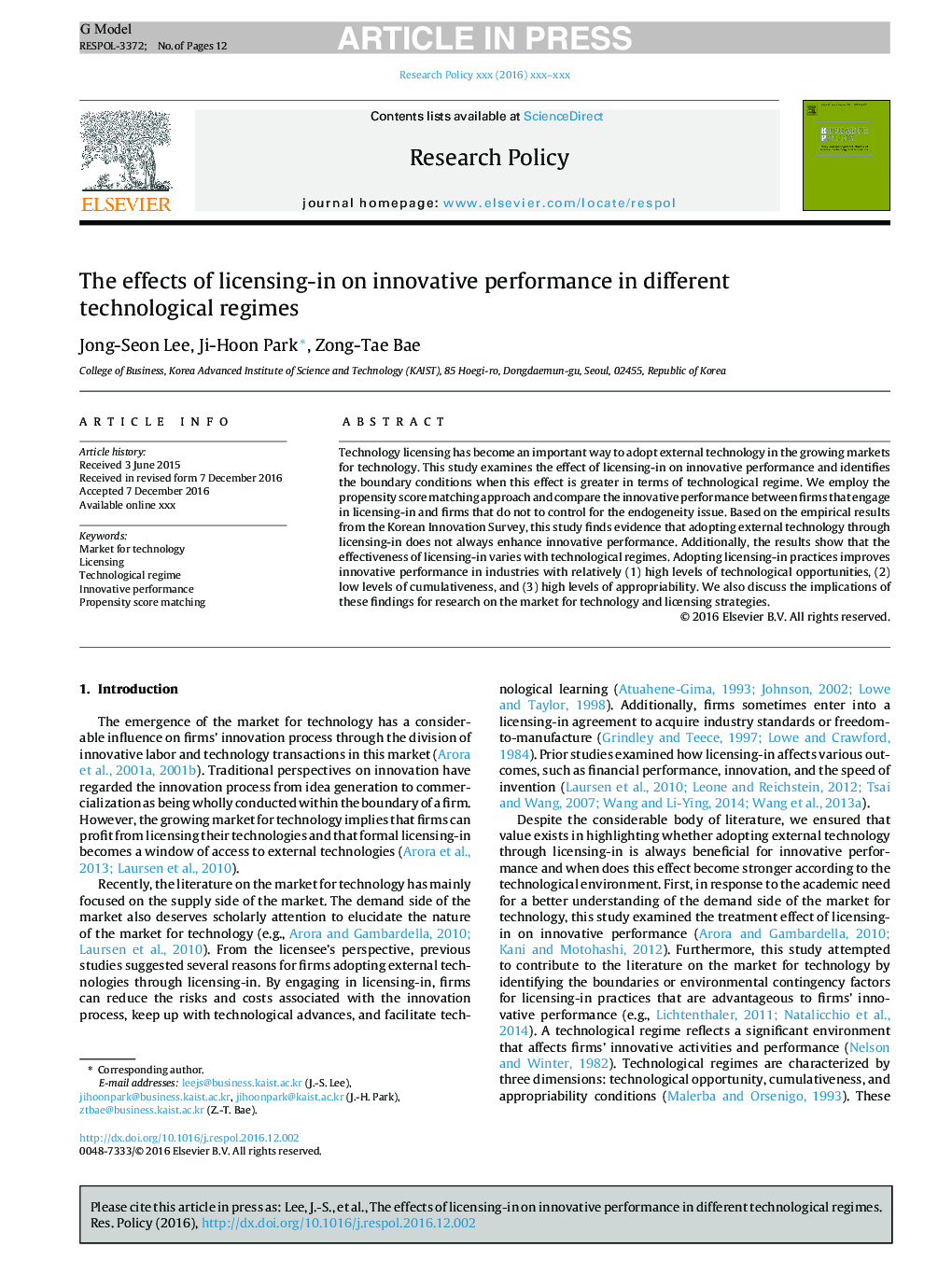| Article ID | Journal | Published Year | Pages | File Type |
|---|---|---|---|---|
| 5104038 | Research Policy | 2017 | 12 Pages |
Abstract
Technology licensing has become an important way to adopt external technology in the growing markets for technology. This study examines the effect of licensing-in on innovative performance and identifies the boundary conditions when this effect is greater in terms of technological regime. We employ the propensity score matching approach and compare the innovative performance between firms that engage in licensing-in and firms that do not to control for the endogeneity issue. Based on the empirical results from the Korean Innovation Survey, this study finds evidence that adopting external technology through licensing-in does not always enhance innovative performance. Additionally, the results show that the effectiveness of licensing-in varies with technological regimes. Adopting licensing-in practices improves innovative performance in industries with relatively (1) high levels of technological opportunities, (2) low levels of cumulativeness, and (3) high levels of appropriability. We also discuss the implications of these findings for research on the market for technology and licensing strategies.
Keywords
Related Topics
Social Sciences and Humanities
Business, Management and Accounting
Business and International Management
Authors
Jong-Seon Lee, Ji-Hoon Park, Zong-Tae Bae,
